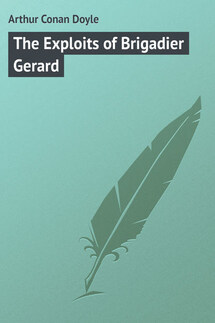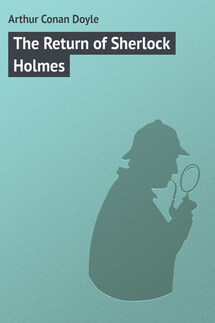The Tragedy of The Korosko - страница 3
"Ladies and gentlemen," said he, plunging boldly into the rapid but broken stream of his English, "to-morrow you will remember not to forget to rise when the gong strikes you for to compress the journey before twelve o'clock. Having arrived at the place where the donkeys expect us, we shall ride five miles over the desert, passing a temple of Ammon-ra, which dates itself from the eighteenth dynasty, upon the way, and so reach the celebrated pulpit rock of Abousir. The pulpit rock is supposed to have been called so, because it is a rock like a pulpit. When you have reached it you will know that you are on the very edge of civilisation, and that very little more will take you into the country of the Dervishes, which will be obvious to you at the top. Having passed the summit, you will perceive the full extremity of the second cataract, embracing wild natural beauties of the most dreadful variety. Here all very famous people carve their names – and so you will carve your names also." Mansoor waited expectantly for a titter, and bowed to it when it arrived. "You will then return to Wady Halfa, and there remain two hours to suspect the Camel Corps, including the grooming of the beasts, and the bazaar before returning, so I wish you a very happy good-night."
There was a gleam of his white teeth in the lamplight, and then his long, dark petticoats, his short English cover-coat, and his red tarboosh vanished successively down the ladder. The low buzz of conversation which had been suspended by his coming broke out anew.
"I'm relying on you, Mr. Stephens, to tell me all about Abousir," said Miss Sadie Adams. "I do like to know what I am looking at right there at the time, and not six hours afterwards in my state-room. I haven't got Abou-Simbel and the wall pictures straight in my mind yet, though I saw them yesterday."
"I never hope to keep up with it," said her aunt. "When I am safe back in Commonwealth Avenue, and there's no dragoman to hustle me around, I'll have time to read about it all, and then I expect I shall begin to enthuse, and want to come right back again. But it's just too good of you, Mr. Stephens, to try and keep us informed."
"I thought that you might wish precise information, and so I prepared a small digest of the matter," said Stephens, handing a slip of paper to Miss Sadie. She looked at it in the light of the deck lamp, and broke into her low, hearty laugh.
"Re Abousir," she read; "now, what do you mean by 're,' Mr. Stephens? You put 're Rameses the Second' on the last paper you gave me."
"It is a habit I have acquired, Miss Sadie," said Stephens; "it is the custom in the legal profession when they make a memo."
"Make what, Mr. Stephens?"
"A memo – a memorandum, you know. We put re so-and-so to show what it is about."
"I suppose it's a good short way," said Miss Sadie, "but it feels queer somehow when applied to scenery or to dead Egyptian kings. 'Re Cheops' – doesn't that strike you as funny?"
"No, I can't say that it does," said Stephens.
"I wonder if it is true that the English have less humour than the Americans, or whether it's just another kind of humour," said the girl. She had a quiet, abstracted way of talking as if she were thinking aloud. "I used to imagine they had less, and yet, when you come to think of it, Dickens and Thackeray and Barrie, and so many other of the humourists we admire most are Britishers. Besides, I never in all my days heard people laugh so hard as in that London theatre. There was a man behind us, and every time he laughed Auntie looked round to see if a door had opened, he made such a draught. But you have some funny expressions, Mr. Stephens!"









